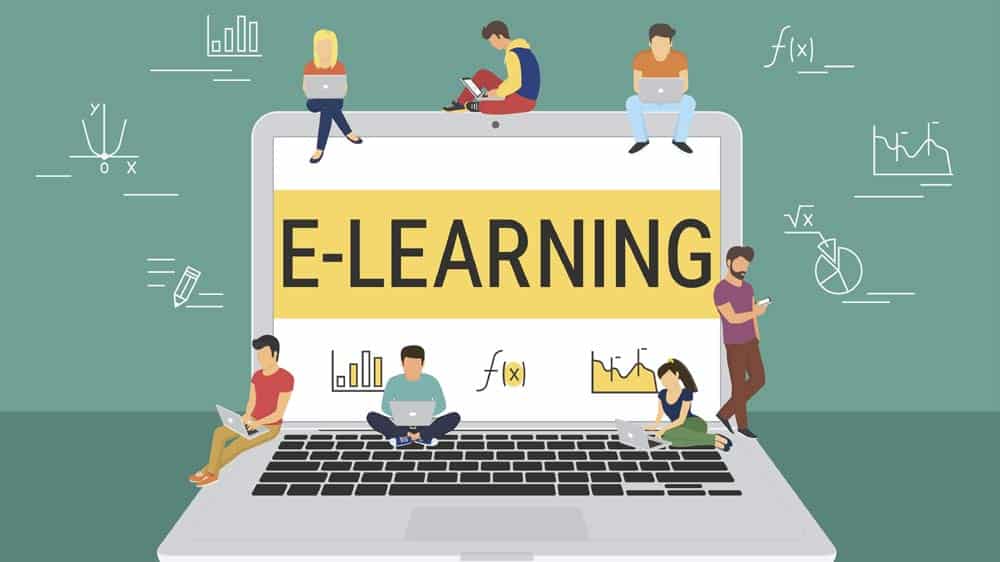The role of e-learning platforms in education

In an era where digital transformation is paramount, e-learning platforms have emerged as a cornerstone in educational frameworks, serving as gateways to infinite realms of knowledge and learning opportunities. This piece explores the multifaceted role that these digital platforms play in today’s educational landscape.
From revolutionizing access to education to personalizing learning experiences and fostering global collaboration, we delve into how e-learning is reshaping the contours of education. The insights provided aim to illuminate the significance of these platforms in promoting lifelong learning and inclusivity.
The Genesis and Evolution of E-Learning Platforms
The concept of e-learning has roots that stretch back to the earliest days of the internet, but it was the advent of robust digital platforms which turned it into a global phenomenon. E-learning platforms started as simple repositories of digitized learning materials but have evolved into complex environments supporting interactive learning, real-time collaboration, and personalized education paths.
With advancements in technology, these platforms have become more accessible, offering learners from all walks of life the opportunity to pursue education on their terms. This democratization of learning is one of the most significant contributions of e-learning to the educational ecosystem.
The widespread adoption of these platforms during the global pandemic further underscored their importance, proving that education can continue to thrive even in the most challenging circumstances.
Personalization and Flexibility: The Hallmarks of Digital Learning
Gone are the days of one-size-fits-all education. E-learning platforms excel in providing tailor-made learning experiences that adapt to each learner's pace, preferences, and goals. This personalization is possible through sophisticated algorithms and data analytics, ensuring that every learner finds content and assessments that best fit their unique learning journey.
Furthermore, the inherent flexibility of these platforms allows students to learn at their own pace, anytime and anywhere. This has opened up learning opportunities for those who may have been excluded from traditional education due to geographical, financial, or personal constraints.
Enhancing Collaboration and Global Learning Communities
E-learning platforms are not just about solitary learning; they are vibrant communities where learners, educators, and experts from around the globe connect, share, and collaborate. Through discussion forums, live webinars, and group projects, learners can engage with peers worldwide, leading to enriched learning experiences and exposure to diverse perspectives.
This global networking also paves the way for cultural exchange and understanding, making education a powerful tool for building bridges across cultures.
Continuous Improvement through Feedback and Adaptation
One of the key features of e-learning platforms is their ability to integrate feedback loops into the learning process. Learners can receive immediate feedback on quizzes and assignments, allowing them to identify areas for improvement quickly. Educators and administrators can also gather insights on learners’ progress and engagement, enabling them to fine-tune curriculum and teaching methods.
This dynamic environment fosters a culture of continuous improvement and adaptation in the educational process, ensuring that the content remains relevant and responsive to learners’ needs.
E-Learning as a Catalyst for Lifelong Learning
In today’s fast-paced world, learning cannot be confined to the years spent in formal education. E-learning platforms serve as indispensable resources for lifelong learning, offering courses and materials that span a wide range of fields and interests. Whether for professional development, personal growth, or simply the joy of learning something new, these platforms provide the resources and flexibility needed to support learners at every stage of their lives.
Challenges and the Path Forward
Despite their numerous benefits, e-learning platforms face challenges such as digital divide, ensuring educational quality, and maintaining learner motivation and engagement. Addressing these challenges requires concerted efforts from governments, institutions, and the tech industry to create inclusive, effective, and engaging learning environments.
As we look to the future, the role of e-learning in education is poised to grow even further. With ongoing technological advancements and increasing recognition of the importance of lifelong learning, these platforms will continue to evolve, breaking new ground in educational innovation and inclusivity.
In conclusion, e-learning platforms are reshaping the landscape of education, offering unprecedented access to learning opportunities, personalizing educational experiences, and fostering global collaboration. As we navigate the complexities of the 21st century, these digital platforms stand as pillars of a more inclusive, flexible, and dynamic educational framework, promising a brighter future for learners around the world.

Related